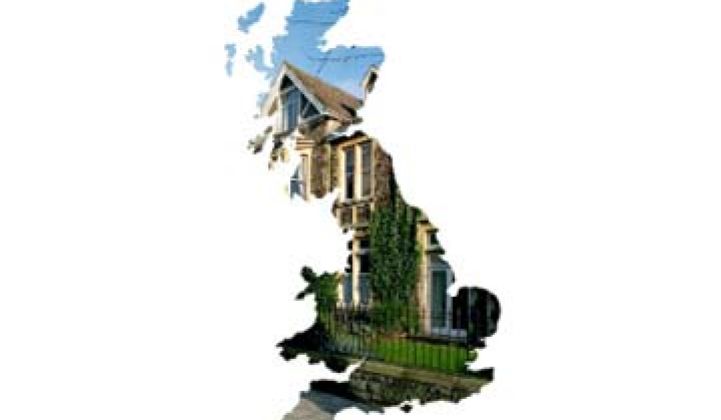In terms of smart grid trends, the United Kingdom ranks high in the areas of raw excitement for vendors. With a goal of installing 47 million meters by 2020, and an open bid for $7.5 billion in communications contracts, companies large and small are looking to be a part of what’s happening in the U.K.
Starting in October 2012, there is one more area that should get a lot of attention: Green Deal. The program, which is run by the government but privately financed, will help homeowners and businesses with energy efficiency improvements up to £10,000 ($16,500) with no upfront costs.
“Green Deal, in a nutshell, is a framework that enables firms to offer consumers the opportunity to invest at no upfront cost and attach the charge to their utility bill,” explained Dan Monzani, deputy director of Green Deal legislation and finance at the U.K.’s Department of Energy and Climate Change (DECC), which is overseeing the program.
If it sounds a little like PACE financing, Monzani is quick to point out that it is actually quite different. Instead of being tied to the mortgage, the financing is tied to the utility bill on the property. Some of the most vociferous opponents of PACE programs in the U.S. were mortgage lenders, who are totally out of the picture in the Green Deal scheme.
If a homeowner, for example, wants to receive money for an upgrade, he or she must contact someone who is approved by the program to do an impartial assessment. From there, the homeowner can use an accredited, approved contractor to the work. If the person moves, the financing stays tied to the utility bill at the house, and the new homeowner is aware before the purchase of the Green Deal fee attached to the bill.
The types of retrofits eligible for the program will include upgrades that will stay with the building, improve the energy efficiency and pay for themselves in a reasonable amount of time. For homes, much of the money will likely go to insulation upgrades. It also means that energy-efficient smart appliances, which could be ripped out when someone moves, will not be part of the Green Deal.
On the back end of the deal, utilities will be collecting money, but they are not the lenders. The utilities will receive a small portion as an administration charge for running the billing program. The money is coming from a consortium of banks that are putting up the money, a total of $21.5 billion in the next decade, with the assumption that they will receive a steady payback through the Green Deal. The investments will likely be packaged and sold to retirement funds.
Insulation will be one focus for homes, but there are a variety of other energy efficiency upgrades that will be included in the program. Monzani noted that something like window glazing, which offers some increase in efficiency, but is also done for aesthetic reasons, would be partially -- but not totally -- covered by the Green Deal. “If you can demonstrate your product saves money on the typical energy bill,” said Monzani, “you can be in the Green Deal.”
He also hinted that smart buildings controls, if they could be proven to save enough energy, would also qualify. “It’s very much designed to work around the whole-house retrofit,” said Monzani. He expects that contractors will be offering products covered by the Green Deal, and also others that may improve convenience or efficiency, even if they’re not part of the deal, when they are working with customers. After all, insulation isn’t very sexy, even if it saves money, but getting some cool new smart thermostats might seem like a good buy if the insulation is already free.
Having energy efficiency assessors and contractors in millions of homes could be a boon for home energy management companies such as Onzo, Tendril, Trilliant, EnergyHub, AlertMe and others that are competing, or looking to compete, in the U.K. market.
But it’s not just for folks on the home front. “We think the small business sector will be a big winner,” Monzani said of the Green Deal. From small stores to hotel chains, there will also be upgrades available for the commercial sector.
The Green Deal is a separate initiative from other energy-focused programs initiated by the U.K. government, such as smart metering and feed-in tariffs. Instead of tying them all together, the government will let the private sector find ways to bundle the offerings in ways that work for customers.
For private companies that want to serve the market, partnering will be key. Some firms like Trilliant are already thinking that way by forming alliances that can leverage each partner firm's platform.
Although the utilities don’t seem like winners in the Green Deal, Monzani said many were very supportive of the program. British Gas expects to see more money from energy services than energy delivery by 2020, so the Green Deal is a perfect project to pitch in order to frame the organization as much more than just a utility delivering gas and electrons.
Many other European countries and U.S. regulators are watching the Green Deal to see if it could be tweaked for their own markets. In the U.S., on-bill financing is already catching on as a means to allow commercial customers to undertake energy efficiency upgrades, and California is considering on-bill financing for residential retrofits.
Currently, the U.K. government is seeing a lot of companies interested in Green Deal and it’s finalizing the list of eligible upgrades that will make the cut to be included in the program. For now, the DECC is just ironing out the wrinkles to make sure it’s a seamless launch in October. “It’s a complex scheme,” he said, noting that it took a lot of work to make sure the interaction between the government, banks and utilities is smooth. “We know it’s complex in its back wiring, so that it can be simple for the consumer on the front end.”



